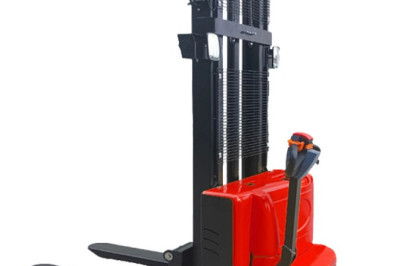views
In the fast-paced world of modern business, data management is a critical component of success. The need to store, manage, and safeguard vast amounts of information has never been more pressing. That's where Network Attached Storage (NAS) solutions come into play. These systems offer an efficient and secure way to handle your enterprise's data needs. But what exactly are NAS storage solutions, and why should your business consider integrating them?
In this comprehensive guide, we’ll explore the ins and outs of NAS storage solutions, their benefits, and how they can seamlessly integrate into your current IT infrastructure. Whether you're an IT manager, a business owner, or just someone interested in enterprise technology, this article will provide you with valuable insights and practical tips for leveraging NAS storage solutions to enhance your business operations.
Understanding NAS Storage Solutions
What is NAS Storage?
Network Attached Storage (NAS) is a dedicated file storage system that enables multiple users and heterogeneous client devices to retrieve data from centralized disk capacity. NAS devices connect to a network, allowing users to access and share files from a centralized location. This makes data management more efficient and convenient for enterprises.
NAS systems are designed to provide fast, simple, reliable access to data in an IP networking environment. They support a variety of protocols, ensuring compatibility with different operating systems and devices. This flexibility is one of the reasons why NAS storage solutions have become a popular choice for businesses of all sizes.
Key Features of NAS Storage Solutions
NAS storage solutions come with a host of features that make them ideal for modern enterprises. These include:
- Scalability: NAS devices can be easily expanded as your data storage needs grow. This means you can start with a smaller setup and add more storage capacity over time without significant disruptions.
- Data Redundancy: Many NAS systems offer RAID (Redundant Array of Independent Disks) configurations, which provide data redundancy and protection against disk failures.
- Remote Access: NAS solutions often include remote access capabilities, allowing users to access files from anywhere with an internet connection. This is particularly useful for businesses with remote employees or multiple office locations.
Types of NAS Storage Solutions
There are several types of NAS storage solutions available, each catering to different needs and budgets. These include:
- Entry-Level NAS: Ideal for small businesses or home offices, these systems offer basic storage capabilities at an affordable price.
- Mid-Range NAS: Suitable for medium-sized enterprises, these devices provide more storage capacity and advanced features such as data encryption and cloud integration.
- Enterprise NAS: Designed for large organizations, these high-performance systems offer extensive storage capacity, robust security features, and advanced data management tools.
Benefits of NAS Storage Solutions for Modern Enterprises
Enhanced Data Management
One of the primary benefits of NAS storage solutions is improved data management. With a centralized storage system, users can easily access, share, and collaborate on files. This eliminates the need for multiple copies of the same document and ensures that everyone has access to the most up-to-date information.
Additionally, NAS systems offer advanced data management features such as automated backups, versioning, and file synchronization. These tools help maintain data integrity and reduce the risk of data loss.
Cost-Effective Storage Solution
NAS storage solutions are a cost-effective alternative to traditional file servers. They require less hardware and are easier to maintain, resulting in lower upfront and ongoing costs. Furthermore, NAS systems are typically more energy-efficient, which can lead to additional savings on utility bills.
The scalability of NAS solutions also means that businesses can invest in storage capacity as needed, rather than purchasing expensive hardware that may go unused. This flexibility allows enterprises to allocate resources more effectively and avoid unnecessary expenses.
Improved Data Security
Data security is a top priority for any business, and NAS storage solutions offer several features to protect sensitive information. These include:
- Data Encryption: Many NAS systems support data encryption, which ensures that files are securely stored and transmitted.
- Access Controls: NAS devices allow administrators to set user permissions, ensuring that only authorized personnel can access certain files or directories.
- Automated Backups: Regular, automated backups help safeguard data against loss due to hardware failure, human error, or cyberattacks.
Remote Access and Collaboration
In today's increasingly remote work environment, the ability to access and collaborate on files from anywhere is crucial. NAS storage solutions provide remote access capabilities, allowing employees to work on documents and projects from any location with an internet connection.
This flexibility not only improves productivity but also enables businesses to attract and retain top talent by offering remote work options. Furthermore, NAS systems often include collaboration tools such as file sharing and real-time editing, making it easier for teams to work together, regardless of their physical location.
Easy Integration with Existing Infrastructure
Integrating new technology into an existing IT infrastructure can be challenging, but NAS storage solutions are designed to be easily compatible with a wide range of devices and operating systems. This means that businesses can implement NAS without needing to overhaul their current setup.
NAS systems support various protocols, including SMB, NFS, and AFP, ensuring seamless compatibility with Windows, macOS, and Linux environments. Additionally, many NAS devices offer APIs and SDKs for custom integrations, allowing businesses to tailor the system to their specific needs.
Choosing the Right NAS Storage Solution for Your Business
Assess Your Storage Needs
Before selecting a NAS storage solution, it's essential to assess your business's storage needs. Consider factors such as the volume of data you need to store, the number of users who will access the system, and any specific requirements such as data encryption or remote access.
By understanding your storage needs, you can choose a NAS solution that offers the right balance of capacity, performance, and features.
Evaluate Scalability Options
Scalability is a critical consideration when choosing a NAS storage solution. Look for systems that allow you to easily expand storage capacity as your business grows. This may include support for additional hard drives, expansion units, or cloud storage integration.
Choosing a scalable NAS solution ensures that your storage system can keep pace with your business's evolving needs, without requiring significant investments in new hardware.
Consider Data Security Features
Data security should be a top priority when evaluating NAS storage solutions. Look for systems that offer robust security features such as data encryption, access controls, and automated backups. Additionally, consider the vendor's reputation for security and their track record in addressing vulnerabilities and providing timely updates.
By prioritizing data security, you can protect your business's sensitive information and reduce the risk of data breaches and cyberattacks.
Review Remote Access Capabilities
In today's remote work environment, the ability to access and collaborate on files from anywhere is essential. Ensure that the NAS storage solution you choose offers robust remote access capabilities, including secure file sharing and real-time collaboration tools.
These features will enable your employees to work more efficiently and effectively, regardless of their physical location.
Check Compatibility with Existing Infrastructure
To minimize disruption and ensure a smooth implementation, choose a NAS storage solution that is compatible with your existing IT infrastructure. Look for systems that support a wide range of protocols and operating systems, ensuring seamless integration with your current setup.
Additionally, consider the availability of APIs and SDKs for custom integrations, allowing you to tailor the NAS system to your specific needs.
The Future of NAS Storage Solutions
Advancements in AI and Machine Learning
The future of NAS storage solutions is likely to be shaped by advancements in AI and machine learning. These technologies have the potential to enhance data management, improve security, and optimize storage performance.
For example, AI-powered analytics can help identify patterns and trends in data usage, enabling businesses to make more informed decisions about storage capacity and resource allocation. Additionally, machine learning algorithms can detect and respond to security threats in real-time, providing an added layer of protection for sensitive information.
Increased Integration with Cloud Services
As cloud adoption continues to grow, NAS storage solutions are expected to become more integrated with cloud services. This hybrid approach combines the benefits of on-premises and cloud storage, offering greater flexibility, scalability, and redundancy.
By integrating NAS vs cloud storage services, businesses can take advantage of cost-effective, scalable storage options while maintaining control over their most critical data.
Enhanced Collaboration Tools
Future NAS storage solutions are likely to include more advanced collaboration tools, making it easier for teams to work together on projects. These may include real-time editing, version control, and enhanced file-sharing capabilities.
By providing robust collaboration tools, NAS systems can help businesses improve productivity and streamline workflows, regardless of team members' physical locations.
Conclusion
NAS storage solutions offer a powerful and efficient way for modern enterprises to manage their data. From enhanced data management and improved security to cost-effective storage and seamless integration with existing infrastructure, NAS provides numerous benefits for businesses of all sizes.
By carefully assessing your storage needs and evaluating the features and capabilities of different NAS solutions, you can choose the right system to support your business's growth and success. With advancements in AI, cloud integration, and collaboration tools, the future of NAS storage solutions looks promising, offering even more opportunities for businesses to optimize their data management and enhance productivity.











